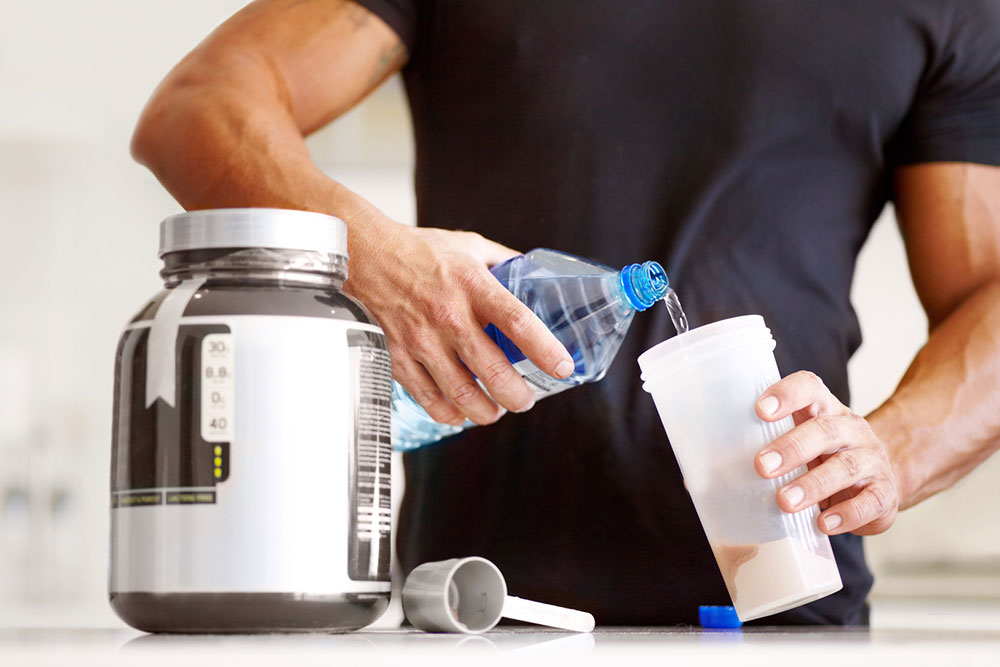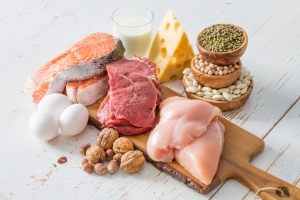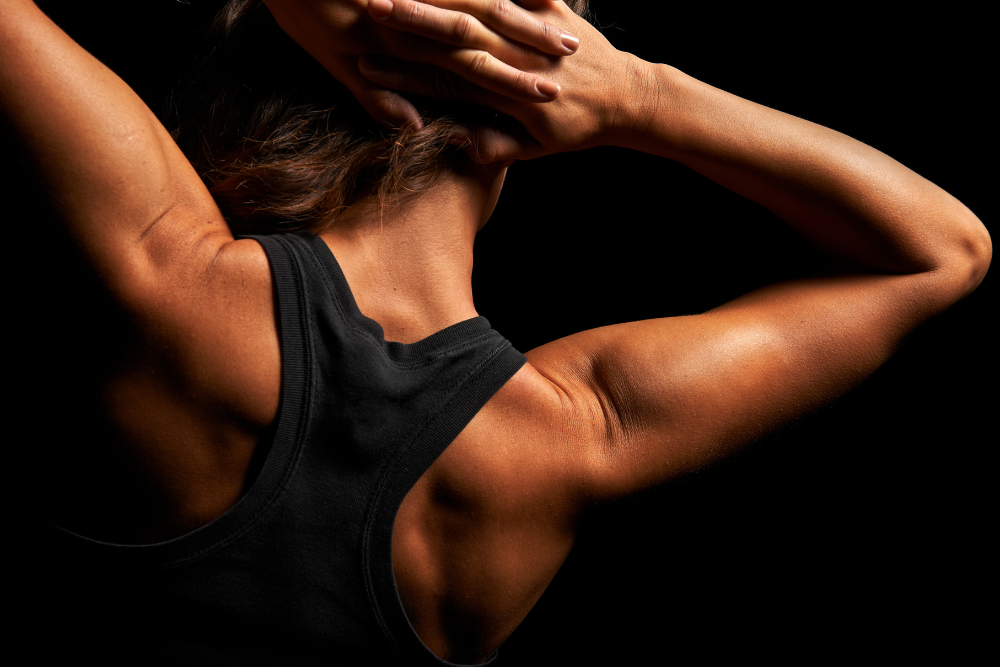Food vs Protein Supplements

Evan Stevens
The final talk in this session was a breath of fresh air for a lot of us. It dealt with the comparison of regular foods versus the use of protein supplements. What researchers wanted to know was if regular food was as good, if not better, than supplementing with protein powders and drinks post-exercise to attain the best recovery and performance outcomes. They found that regular food, when taken post-workout, can have the same benefits as post-workout supplements.
That said, the foods they used were made sure to match the protein and glucose content that recovery drinks often provide. To this end, the researchers used a high protein type of cheese and regular bread.
Food Vs Protein Supplement Findings
Participants consumed cheese and bread to levels that were not significantly different from those seen in formulated recovery drinks. The researchers found that muscle damage and pro-inflammatory markers decreased. In addition, anti-inflammatory markers (such as interleukin 10) and markers of muscle repair were increased. These cost benefits could be very promising, as a tub of adequate protein powder can often be quite expensive.

The problem is that the foods given were chosen for a specific purpose. They had a good profile of amino acids (high in leucine for example). And they provided enough substrates under monitored conditions to achieve the same benefits as supplemented formulas. The applicability may be more difficult under more free-living training conditions; we need better understanding of the exact food profiles we are looking for.
Take Away
Food can be a just as good and far less expensive alternative to recovery powders and formulas. However, the specificity of the food and the monitoring conditions of the study are difficult to translate to a free-living environment. Better labelling and understanding of food choices is needed before applicability can really come into play.
(adsbygoogle = window.adsbygoogle || []).push({});
You Might Like:
RFK’s Plan to Make America Healthy Again: A Vision for a Healthier Future
Robert F. Kennedy Jr. (RFK Jr.), a prominent environmental lawyer and political activist, has emerged as a voice for change in the United States. Known for his work on environmental and public health issues, particularly...The Science of Temperature Therapy
Temperature therapy (also known as “thermal therapy” or “thermotherapy”) involves the use of heat or cold to improve health and function. Interestingly, thermotherapy has been around for centuries, with ancient cultures regularly using hot springs,...The Predictors of Longevity You Need to Care About
Living a long and healthy life is a universal aspiration, and with the publication of Peter Aittia’s new book “Outlive”, it has never been a bigger focus. With this has come the realisation that, while...How Overtraining and Undertraining Impacts Hormonal Health
While maintaining a healthy hormonal balance is essential for overall health and wellbeing, it is an often-overlooked component of women’s health. Hormones play a vital role in regulating various bodily functions, including metabolism, energy, mood,...12 days of Fitness: 12 Holiday workouts to crush this Christmas
The holiday period is a time for friends, food, and family. With this in mind, it should be a time of guilt-free fun. However, that doesn’t mean you have to neglect your fitness entirely over...Upper Body Strength in Post-Menopausal Women
Menopause is a unique time in the human life, and with it comes a myriad of changes that can have wide reaching health implications. However, over the last 20 years we have seen a strong...(adsbygoogle = window.adsbygoogle || []).push({});














